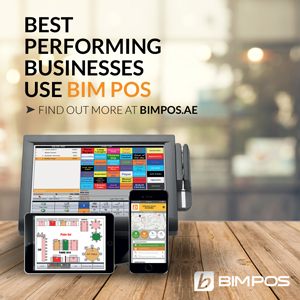Picture is for illustrative purposes only
Image Credit: Supplied
Specialty foods are typically high-value and, at least in the beginning, low production. Though it may seem easy to start a brownie assembly line in your home kitchen, the UAE regulations requires a commercial kitchen to sell to consumers or at a larger venue than the local markets. Starting a commercial kitchen from scratch can cost up to AED 500,000 far more than the average food entrepreneur has to spend before even making their first batch of salsa.
This need for low-cost kitchen space has led to the development of shared commercial kitchens that can be rented for hourly or monthly rates. But finding a place to make specialty food products is only the first step. Entrepreneurs who want to make a profit have to successfully package, market, and sell their products, too. That’s where food incubators come in.
What do Food Incubators do?
A shared-use kitchen incubator is a licensed commercial space that is certified for food production. Renters or members can use the kitchen by the hour or day to produce food while fulfilling regulatory compliance. Food entrepreneurs, ranging from chefs, caterers, food trucks proprietors, bakers, to value-added producers, can benefit from the shared kitchen instead of spending capital to build or lease their own facility. A commissary kitchen is an example of a shared-use kitchen that provides kitchen rentals.
Kitchen incubators, also known as culinary incubators, also provide kitchen rental but provide additional services like business development training, and access to ecosystem services such as legal aid, packaging, label printing, and distribution.
Restaurant incubators, also known as food accelerators provides a kitchen space and outlet to sell products and menus to the consumers on a low rental basis or revenue share model. Some of these incubators offer additional services such as food delivery, packaging, marketing accounting and business development trainings.
By mitigating start-up costs and providing a nurturing environment, food incubators help food businesses grow and stay in their communities. Food incubators rely on the fact that UAE food regulation prohibit the sale of food that is not produced in a licensed facility. Culinary start-ups are unlikely to receive venture capital or bank financing, as profit margins are too slim and volatile for such a highly competitive market. Food products must be tested and tweaked over time before they are economically viable. Even once proven viable, the entrepreneur must navigate a complex network of regulation, packaging and distribution before running a profitable enterprise. This entrepreneur often lacks a business background and an understanding of what is involved in the start-up process. Start-up costs in the food space are high and can range, as of 2019, from AED1,000,000 to AED 3,000,000.
Who benefits from Food Incubators?
Kitchen incubators are likely to be used by the following end-users:
- Start-up food businesses in need of their first facility
- Home-based businesses that wish to legalize and grow their operation
- Established businesses relying on one-off or difficult situation kitchen rentals
- Established businesses looking to grow or reach a new market
These businesses include caterers, food trucks, prepared meal services, meal or box delivery, pet food makers, personal chefs, bakers, street vendors, cake decorators and producers of specialty food items such as condiments, beverages, and candies. Delivery only restaurants, also known as ‘dark restaurants’, ‘ghost restaurants’, or ‘cloud restaurants’ are increasing leveraging shared use kitchens to lower their overhead and launch pop-up dinner options.
How well are Incubators working?
While there are clear benefits to entrepreneurs who want to work with a food incubator, running one takes more effort than slapping together a kitchen and opening the doors. If, like most, the incubator doesn’t take a percentage of future revenue, then its main sources of income are often kitchen rentals and storage. But a case study of incubator kitchens found that “the kitchen is not likely to cover more than 30 to 40 percent of the facility’s cash flow even when fully booked.”
Only 39 percent of for-profit incubators report making a profit, while 57 percent break even, according to a 2013 industry report. Nonprofit incubators have an even more difficult time being self-sustaining, with just 15 percent making money and a full 31 percent operating at a loss.
Incubators are in many ways a modern-day apprenticeship, no years of unpaid toiling required. The benefits to business owners are clear. But there is still uncertainty in the practicability of running a business that often relies on low hourly rentals of kitchen space. With the increase in number of startup food businesses the need of such incubators will increase. Perhaps a model where landlords, experts and business owners come together can provide a real shot at thriving a new incubating business model that takes into account both the fundraising and social mission aspects of these services.
















